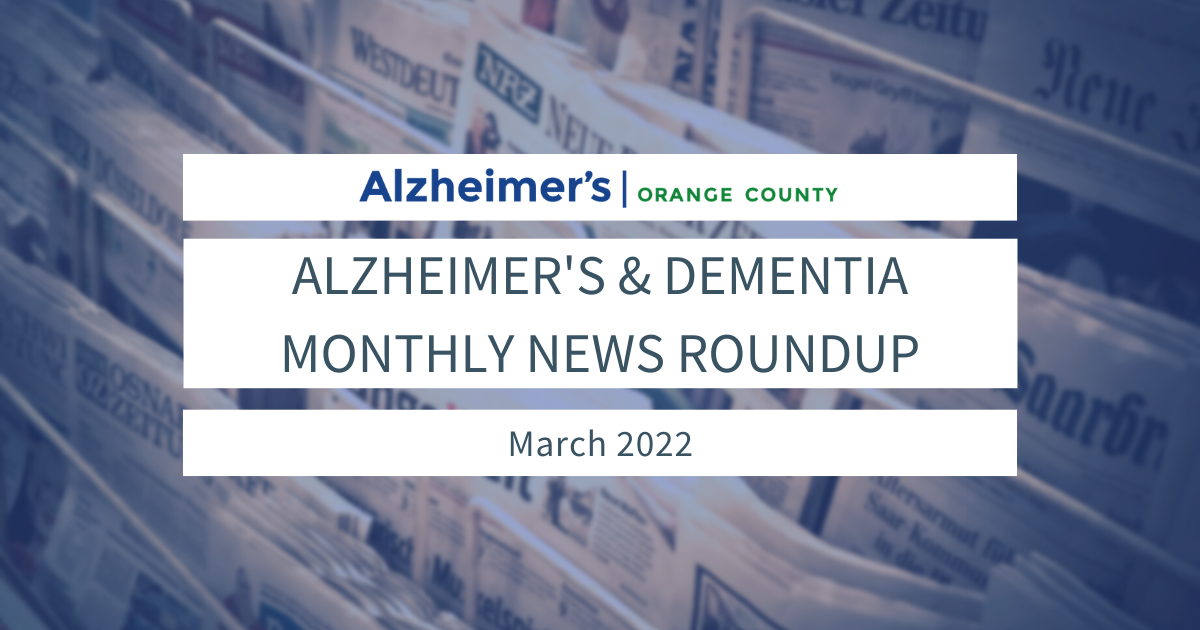April 1, 2022
A monthly recap of the latest news about Alzheimer’s and dementia
Damage early in Alzheimer’s disease ID’d via novel MRI approach
A new method has the potential for helping diagnose Alzheimer’s before symptoms develop. Read more here.
Several studies have indicated that the association between APOE4 and Alzheimer’s risk differs between various racial and ethnic groups. Read more here.
Is my memory going or is it just normal aging?
Don’t try to assess yourself. Rather, enlist a close friend or family member to detect whether you are having a problem. Read more here.
Can Ultrasound Help Treat Alzheimer’s?
Researchers are studying how the technology can impact dementia and the brain. Read more here.
Some of the world’s lowest dementia rates are found in Amazonian indigenous groups
Research adds to evidence that healthier pre-industrial lifestyles may hold clues to preventing Alzheimer’s and other dementias. Read more here.
“Alzheimer’s disease is the only illness where the person passes away twice.” Latino caregivers say they’re facing more barriers. Read more here.
Most people don’t know these possible signs of early Alzheimer’s
More than 80% of Americans aren’t familiar with Mild Cognitive Impairment which affects up to 18% of people ages 60 and older and can lead to Alzheimer’s disease, a new survey has found. Read more here.
Imaging technique shows Alzheimer’s impact on brain connections
A new imaging technique found that fewer connections between brain cells were associated with the cognitive decline seen in people with early-stage Alzheimer’s disease. Read more here.
New strategy reduces brain damage in Alzheimer’s and related disorders, in mice
Targeting inflammatory brain cell may be effective for brain diseases linked to tau protein. Read more here.
Cholesterol and glucose levels at age 35 are linked to future risk of Alzheimer’s
Getting your cholesterol and glucose levels in a healthy range at a young age could save you from an Alzheimer’s diagnosis later in life. Read more here.
Blocking hormone improves Alzheimer’s symptoms in mice
Researchers have been studying whether hormones play a role in these differences between the genders. Read more here.


